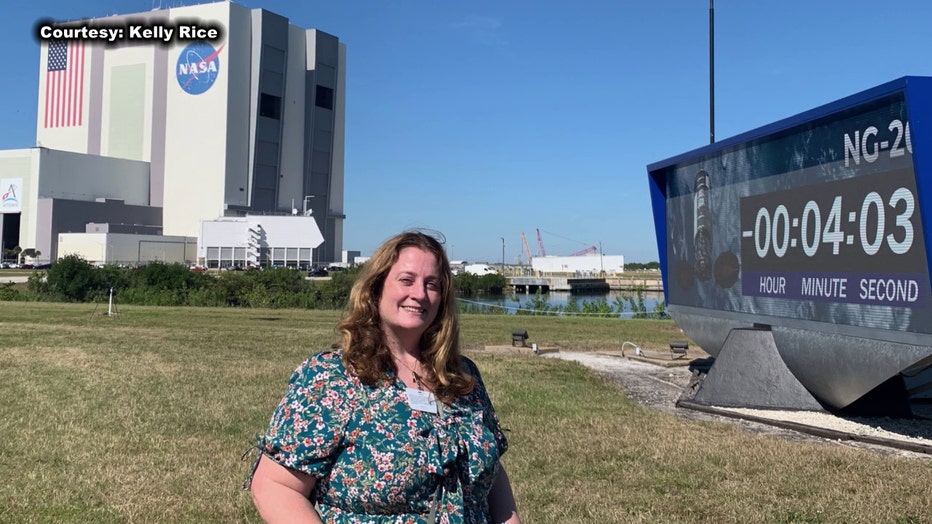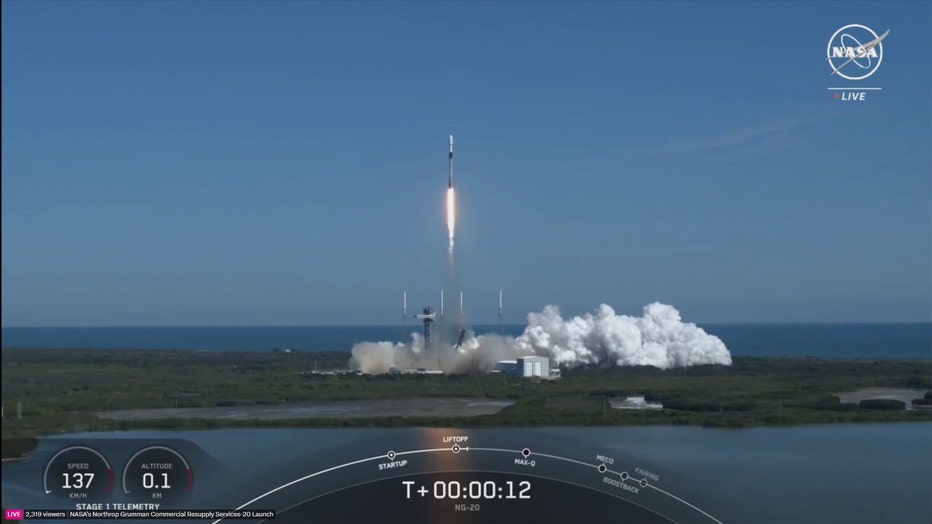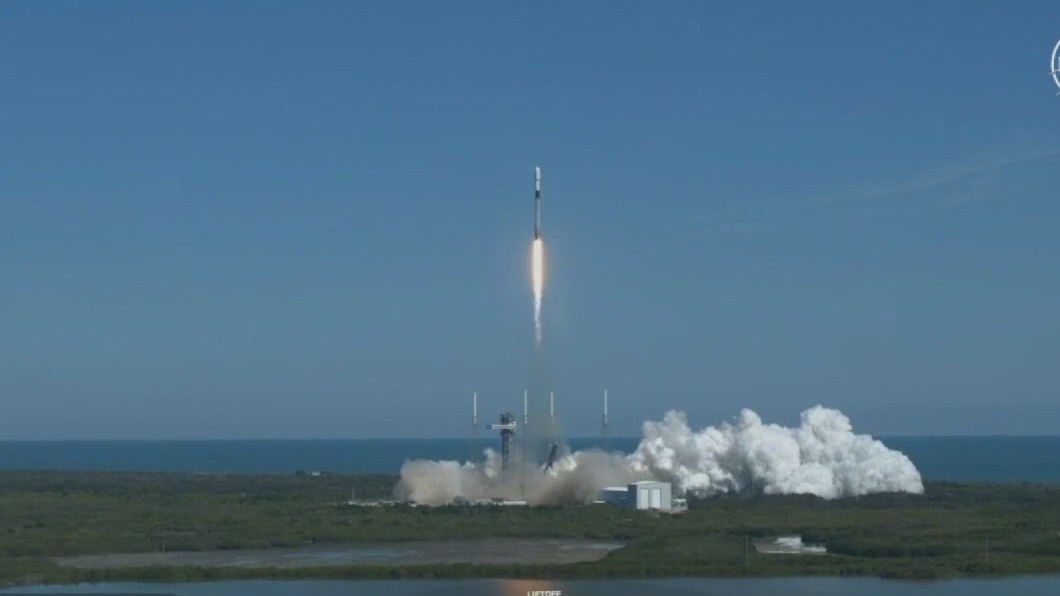Florida professor's experiment launches to International Space Station to study zero-gravity infections
CAPE CANAVERAL, Fla. - SpaceX launched a rocket Tuesday afternoon with thousands of pounds of gear heading to the International Space Station.
By Thursday morning, the astronauts on the ISS will have new food, replacement parts and new science experiments, including one experiment designed by University of Florida professor, Dr. Kelly Rice.
"I'm still basking in [the launch]," she said during an interview Tuesday afternoon. "It was amazing. I've been a lifelong science fiction space nerd, and just being able to incorporate that into my actual work that I do has been incredible."

READ: Tampa man's ashes to be launched into deep space with DNA from three U.S. presidents
When the ISS astronauts get their latest payload, they'll unpack a kit that will allow them to test how being in low gravity impacts staph infections. It can be super dangerous for an astronaut, because they block the usual ways our bodies stop infections.
"We're looking at sending humans back to the moon to Mars eventually," said Dr. Rice. "And so, for these longer-term spaceflight missions, it's incredibly important to make sure everything works perfectly."
ISS astronauts will grow bacteria in enclosed canisters, then freeze their findings and send them back to earth on a future flight. Her previous studies have already shown that a lack of gravity can make staph infections more severe.

"Under certain conditions where one's immune system is compromised or if there's a breach in our skin, it can very quickly go from being a harmless bacteria on the skin to a harmful, very, serious infection."
MORE: Prada to design spacesuits for NASA's Artemis III lunar mission
The experiment will be returning on a future mission back from the ISS to earth, but a date for that has not been set.
The astronauts will be thrilled to get her experiment, of course, but they are also likely looking forward to the payload of fresh fruit and ice cream that the SpaceX rocket brought.


